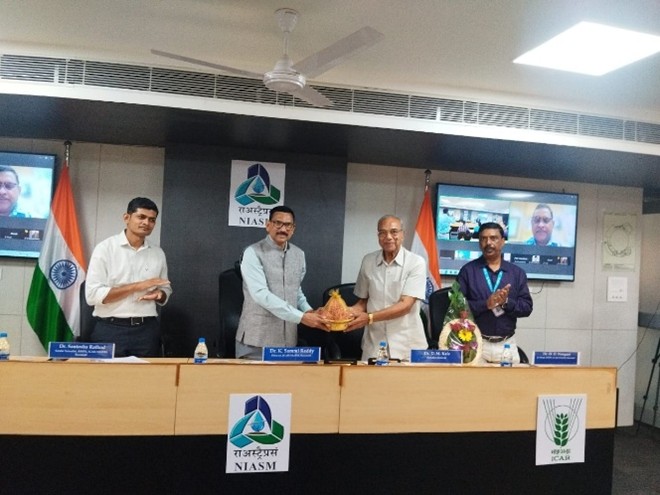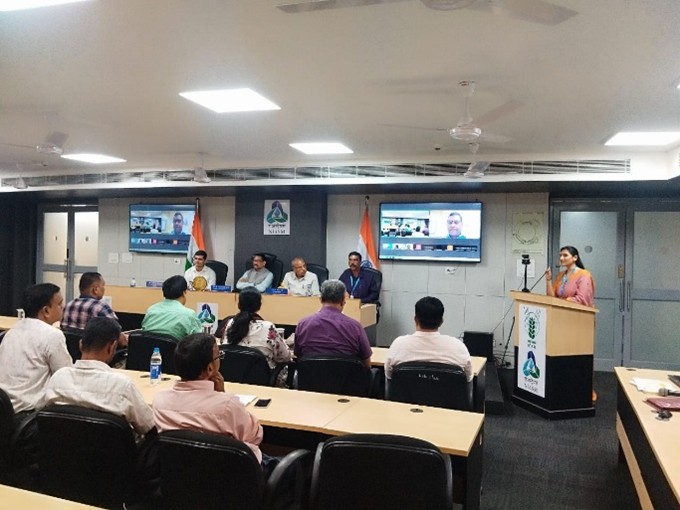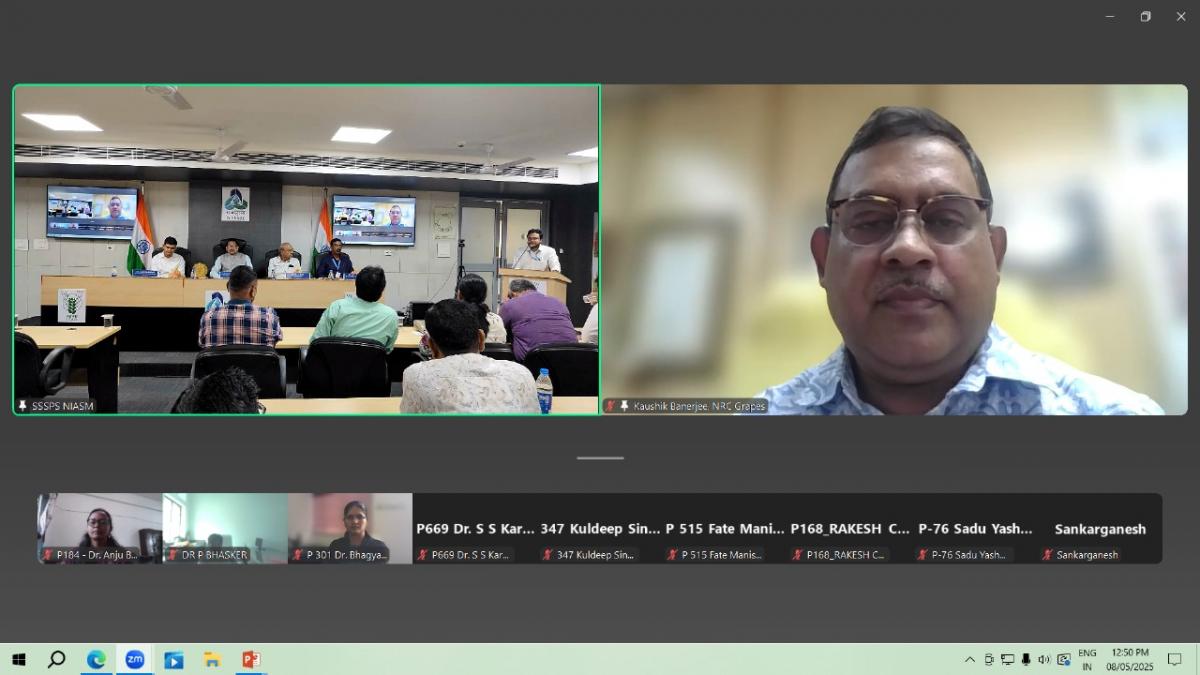A 21-day online training programme organized at ICAR-NIASM, Baramati
The ICAR-National Institute of Abiotic Stress Management (NIASM), Baramati, successfully concluded its 21-day online training programme on “Advanced Statistical and Machine Learning Techniques for Data Analysis Using Open-Source Software for Abiotic Stress Management in Agriculture”, on August 5, 2025. The programme, held from July 16 to August 5, 2025, aimed to advance agricultural research and innovation through cutting-edge data analysis techniques. The valedictory program commenced with an engaging introduction by Ms. Navyasree, Scientist, ABM, setting a vibrant tone for the event. The ICAR and ICAR-NIASM song followed, evoking the sense of unity in participants and symbolizing commitment to research, innovation and sustainability. Dr. Santosha Rathod, Course Director, presented a comprehensive report, noting significant improvements in participant performance. Pre- and post-training assessments demonstrated a significant rise in average scores from 59.5% to 81.86%, reflecting improved consistency. A paired t-test (t=20.73, p<0.001) confirmed the statistical significance of this enhancement. Participants rated the training highly, with an average satisfaction score of 4.79 out of 5.0. Dr. Kaushik Banerjee, Director, ICAR-NRC for Grapes, Pune, the Chief Guest, commending the programme’s success and highlighting the transformative role of machine learning and deep learning in addressing abiotic stress in India’s arid and semi-arid regions. He emphasized how these technologies can optimize resource use and enhance crop resilience, paving the way for sustainable agricultural practices. Dr. D. M. Kale, Retired Plant Breeder, BARC, Mumbai, Guest of Honour, emphasized the growing potential of open-source software in data analysis. He praised ICAR-NIASM’s efforts in organizing the training and structuring its lectures to inspire participants to drive future innovations. He also highlighted the importance of advanced analytical tools, enabling researchers to tackle complex challenges in abiotic stress management with greater efficiency. Dr. K. Sammi Reddy, Director of ICAR-NIASM, commended the organizing team for their meticulous planning and dedication in curating a comprehensive training programme poised to advance agricultural research. He encouraged trainees to apply their training skills to pioneer solutions for abiotic stress management in agriculture, emphasizing the need for collaborative efforts to address climate-induced challenges. The programme attracted 776 participants, with a balanced representation of 52% male and 48% female attendees, including agricultural faculty, industry professionals, research scholars, and students from all 28 states and 5 union territories of India. Certificates of completion were awarded to all participants, recognizing their commitment to advancing their expertise in data analysis for agriculture. Dr. Nobin Chandra Paul, Scientist (Agricultural Statistics) expressed deep gratitude to all participants, coordinators, and guests for their contributions to the program’s success. The valedictory function saw enthusiastic participation from ICAR-NIASM’s scientific, technical, and administrative staff, alongside online trainees. The event concluded with the National Anthem, leaving attendees inspired and united in their pursuit of agricultural innovation.






